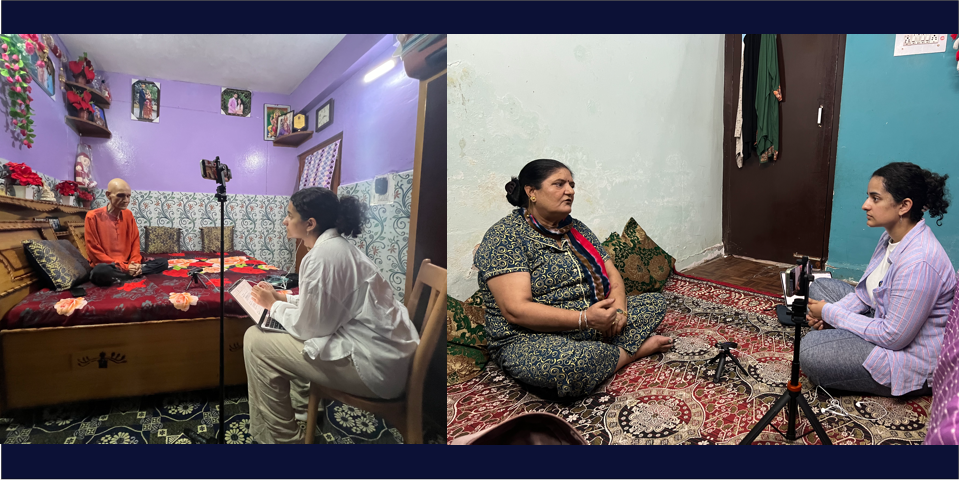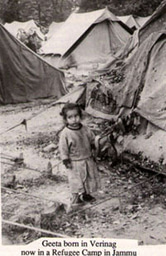Detailing What I Did: Oral History Fieldwork

During the later three weeks of my project, much of my time was devoted to conducting long-form interviews that lasted between 40 minutes and 2.5 hours, with most averaging close to an hour. Before each interview, I would spend time with the family in a more casual setting, focusing on building trust and easing into the interaction. This was a delicate balance. I wanted to connect meaningfully without hearing too much of their story before the official interview began. Still, there were many moments when a powerful anecdote would surface during these early conversations, often shared with raw, unfiltered emotion that could never be fully replicated again. Though those stories weren’t formally documented, I felt deeply honored to be trusted with them.
After conducting an interview, I would often share a meal or tea with the family. By this point, the experience of having walked through someone's life story together created a sense of closeness. Many of my participants came to view me as more than just an interviewer; I felt like I was welcomed as part of their family. Conversations over food often revealed even more, experiences and emotions that they did not want shared on record but were comfortable confiding in me. These moments, though private, gave me a much deeper understanding of who they were. Altogether, I typically spent about half a day with each family I visited.
On most days, I would record two to three interviews. Once I returned home, I made sure to log my reflections and observations before going to bed. This became an important part of my process, grounding me after such emotionally rich and demanding days while also helping me track the unfolding of the project. Alongside these routines, I also faced many challenges: ranging from participants’ understandable hesitations to open up about certain topics, to the difficulty of privately processing some of the most harrowing stories I heard, to navigating the emotional weight of carrying those accounts with me. I felt profoundly grateful to have professors, both from my university and beyond, whom I could call for guidance and support during those moments.
In addition to conducting interviews, I was also responsible for carefully managing the materials I collected. Each interview was both video and audio recorded, first stored on my phone and then backed up onto a hard drive to ensure nothing would be lost. The next stage of my work will involve transcribing and translating these recordings before returning them to each participant for review and approval. Once they give their consent, the final versions be submitted to the archives, a process that reinforces the collaborative, participant-centered nature of this project.
The journeys themselves, from my home in Gandhi Nagar to the camps, or from the hotel to people’s houses, became a meaningful part of my process. On the way there, the car rides were filled with anticipation and conversation; I would debrief with my father, who offered suggestions on how I could listen better, frame questions more gently, or add another layer of sensitivity to my approach. The drives back, however, were quieter, solemn and sweet. I carried with me the weight of what I had just heard, often feeling deeply humbled and unexpectedly renewed by the resilience in those stories. The routes were never ordinary: in Kashmir, the car wound through luscious green valley lined with evergreens, while in Jammu, the rocky, bush-filled hills stretched out under an equally vast sky. The windows were always down, the cool air brushing my face, and I often leaned out as if to breathe in not just the wind, but the histories and silences it carried.
My father’s presence throughout this journey became invaluable. Initially, his role was one of safety, but as one of my mentors later reminded me, in the Indian context, having an elder from the community alongside you is far more than protection, it becomes a bridge. He spoke the language fluently, understood the cultural nuances, and was attuned to subtleties I might have missed. In several interviews, he even stepped in as my translator, which allowed participants to feel more comfortable expressing themselves in their own words and rhythms. Looking back, his role was not just helpful but essential, a gift that shaped the depth of my project and the trust that sustained it.

Please sign in
If you are a registered user on Laidlaw Scholars Network, please sign in